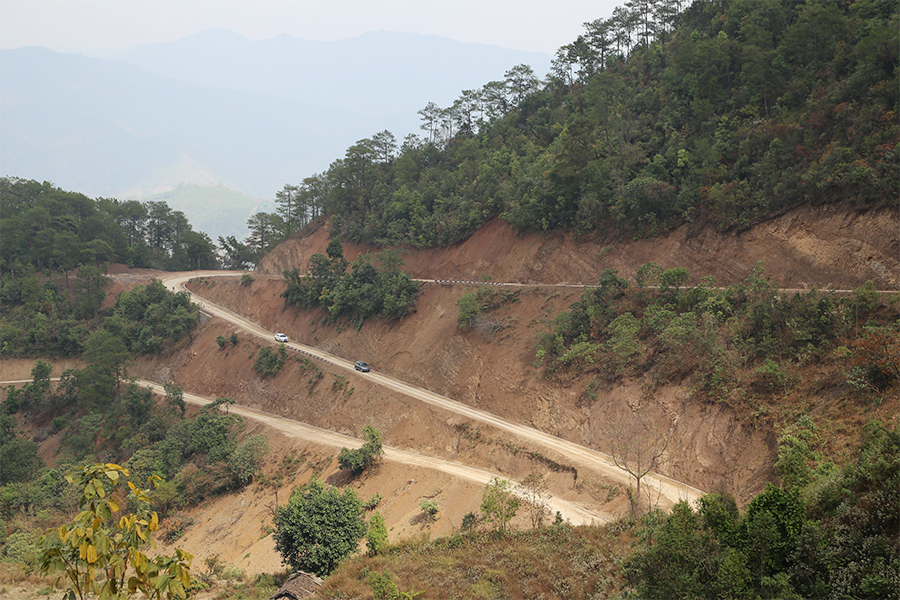
Xigui Ancient Tree Tea, grown along the Lancang River in Bangdong Township, Lincang, Yunnan, is renowned in the tea world as the “Ban Zhang of Lincang.” Thriving on steep slopes at a low altitude (approximately 750 meters), these tea trees are nurtured by alternating fog and intense sunlight, while the lateritic red soil and riverside winds sculpt their character. The result is a tea of striking duality—bold yet elegant, with an unparalleled “rock rhyme”—earning it the title of “the Hermit of the Lancang River.” Its sensory profile can be distilled into the following dimensions:
1. Aroma: Orchid Elegance, Mushroom Nuance, Rock Resonance
Xigui’s fragrance is layered and penetrating, unfolding like a landscape scroll with each infusion:
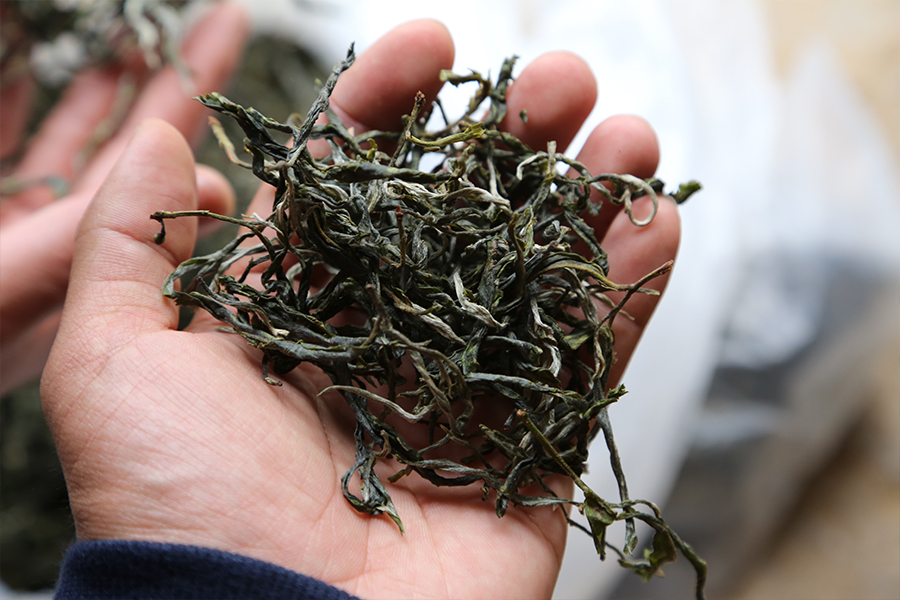
- Dry Leaf Aroma: Tight, dark-green twists release a delicate orchid scent, laced with the earthy freshness of post-rain forest moss.
- Hot Cup Aroma: When awakened by boiling water, wild orchid and ripe fruit notes burst forth, followed by a savory umami reminiscent of matsutake mushrooms. The finish carries a mineral edge, akin to sunbaked river rocks.
- Cool Cup Aroma: As the liquor cools, the cup’s base reveals a honeyed sweetness interlaced with a cooling wild mint note, reflecting the pristine terroir of high-altitude mist-shrouded tea.
2. Flavor: Intensity, Freshness, and Bitter-Sweet Harmony
Xigui is celebrated for its “broth-like thickness and thunderous sweetness,” delivering a dramatic interplay of flavors:
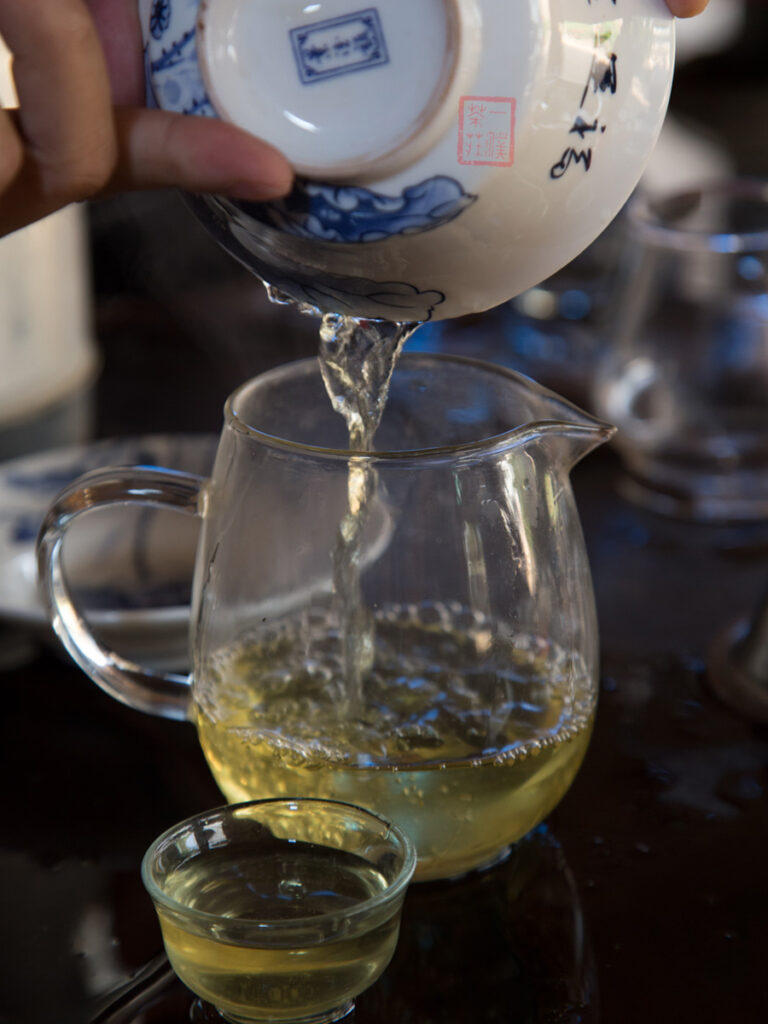
- Initial Sips: The first three infusions are robust and textured. A dark chocolate-like bitterness swiftly dissolves into sweetness, washing the tongue with spring-water freshness, while saliva flows like a mountain spring.
- Mid-Session Surge: From the fourth to eighth steeps, bitterness fades, replaced by wild honey sweetness and umami richness. A cooling rock sugar sensation lingers in the throat, as if dissolving an ice crystal.
- Late Infusion Serenity: Beyond ten steeps, the liquor turns crystalline and sweet, with woody and glutinous rice aromas emerging. Even the faintest brews retain whispers of floral-rock complexity, enduring over 20 infusions—a testament to ancient tree vitality.
3. Afterglow: Soft Power, Hidden Strength
Xigui’s “gentle surface, fierce core” creates a paradoxical elegance:
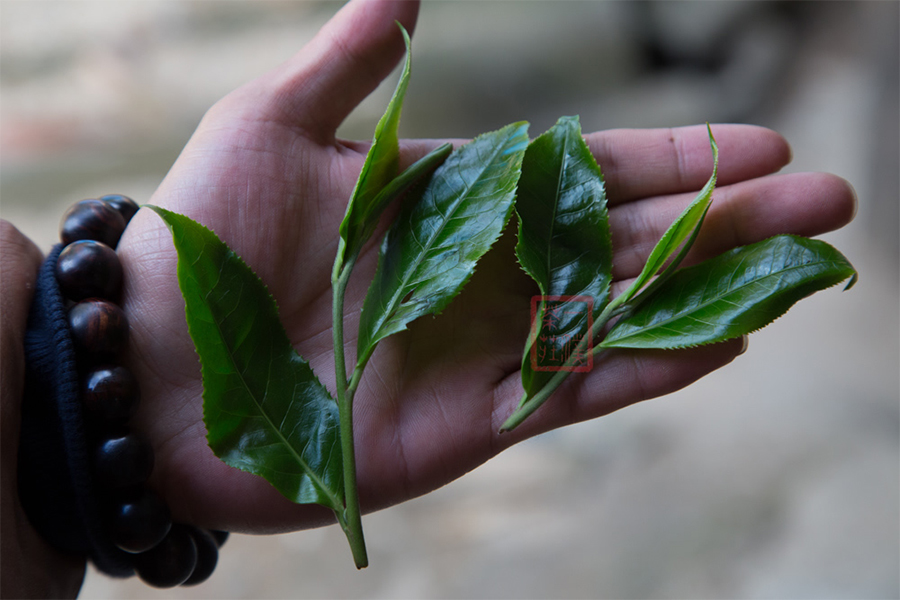
- Silken Texture: The liquor glides like satin, with a viscosity rivaling Lao Ban Zhang, yet shimmering like rock sugar syrup.
- Qi Sensation: Within minutes, warmth radiates from the chest, energy rising along the spine to crown the forehead with subtle sweat—a signature of its yang-dominant terroir.
- Lingering Depth: A cooling sensation descends from the throat to the abdomen, while sweetness spreads from the tongue’s root to the cheeks, forming a “three-dimensional” throat resonance that lingers for half an hour.
4. Terroir: Rock-Steeped Legacy, Ancient Tree Essence
Nestled against the Lancang River, Xigui’s tea trees intertwine with rocks, forging a unique “rock tea” character:
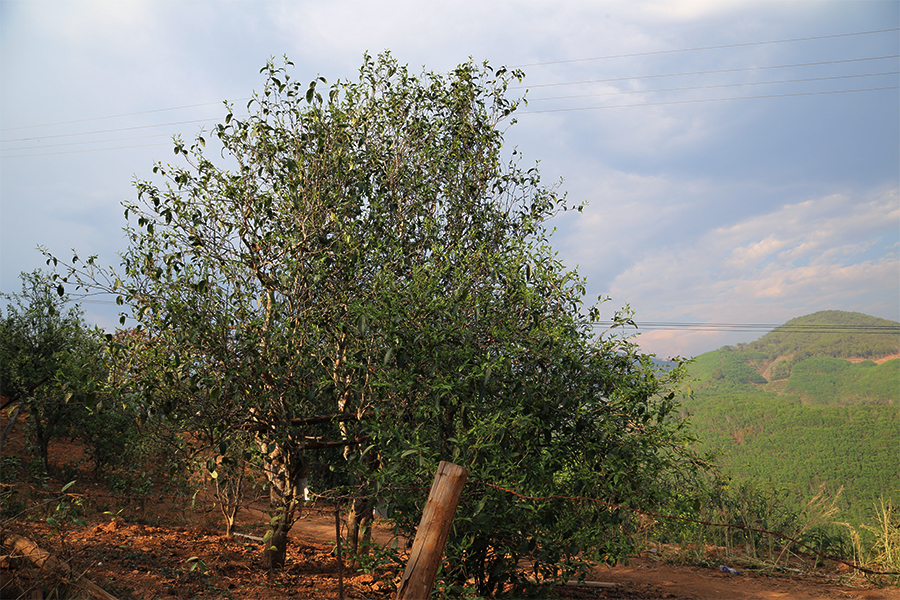
- Mineral Core: The liquor carries a Wuyi-like “rock rhyme,” evoking the metallic echo of iron-rich laterite, as if dissolving a river stone.
- Ancient Vitality: Trees over 300 years old balance polyphenols and amino acids masterfully, ensuring bitterness dissolves instantly—a hallmark of Xigui’s “sweetness upon contact” legend.
- Climatic Alchemy: A 15°C daily temperature swing concentrates tea pectin, creating a golden “tea halo” that shimmers when cooled.
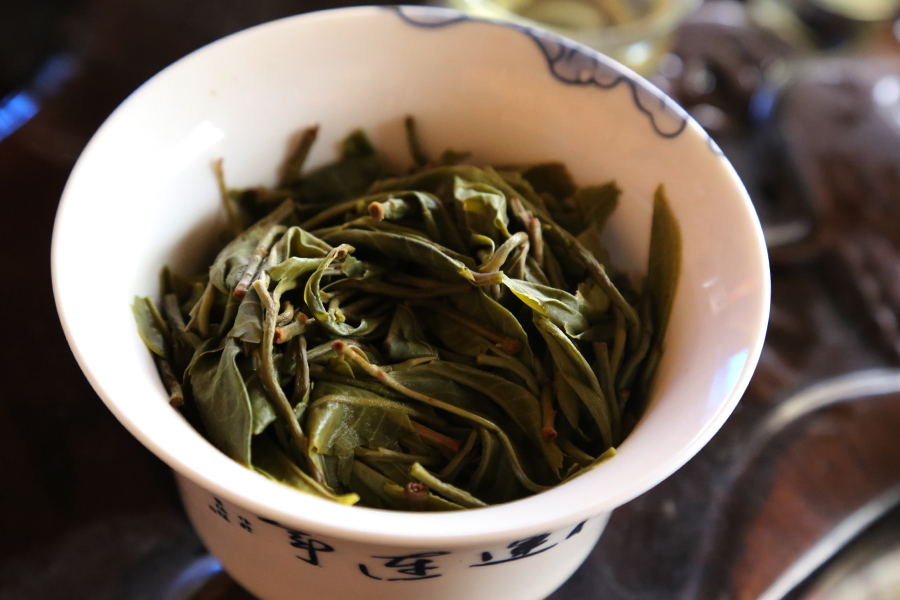
Hallmarks of Identity
- Appearance: Willow-leaf-shaped strips with dark “horse-hoof stems”; sparse leaf fuzz hints at wild varietal ancestry.
- Aging Potential: New tea carries aged charm; after three years, mushroom notes evolve into pine resin, while a decade deepens its rock-inspired profundity.
- Soul: Marrying low-altitude intensity with alpine clarity, Xigui’s fierce energy cloaked in tenderness mirrors the Lancang River’s fury and the mist’s embrace.
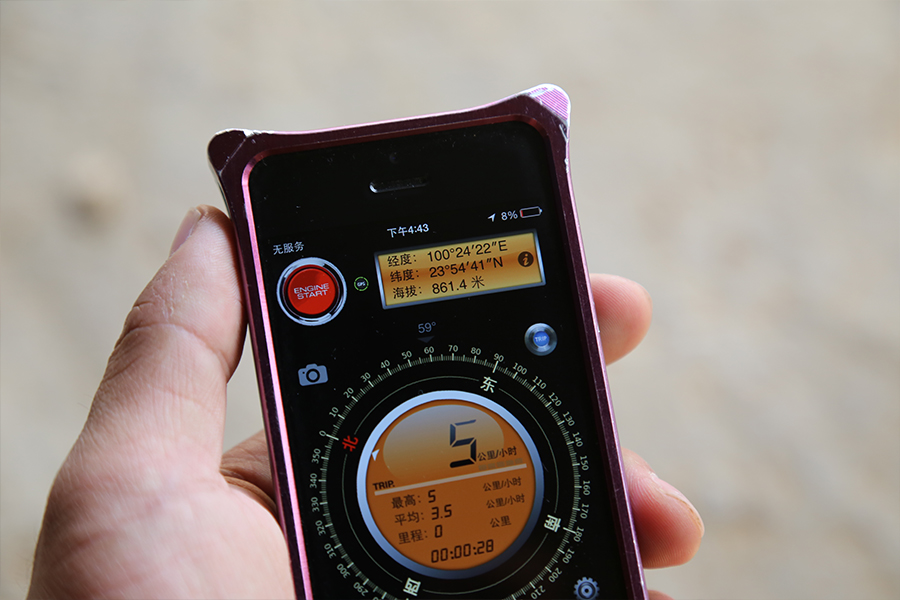
Xigui Ancient Tree Tea is a symphony of nature and time. Each sip channels the Lancang River’s torrents, the icy breath of Bangdong’s snow-capped peaks, and the silent pulse of ancient rocks. Unlike Yiwu’s delicacy or Ban Zhang’s dominance, it carves its own cosmos within “rock bone and floral spirit,” standing as an irreplaceable landmark in the universe of Pu-erh. To drink Xigui is to taste not just tea, but the geological epic of the Lancang River itself.